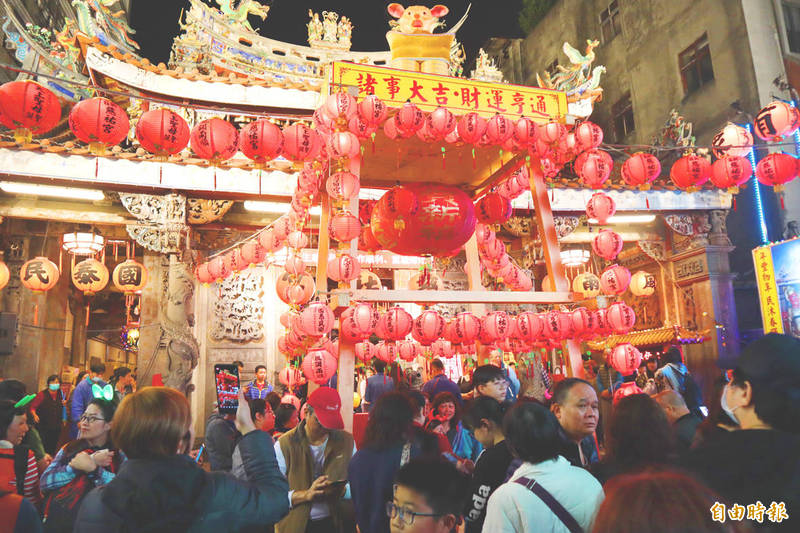《TAIPEI TIMES》 Rules for compensation for cultural land advance

People attend an event at Tzu Yu Temple in New Taipei City’s Sinjhuang District on Feb. 19, 2019. Photo: Chou Hsiao-yun, Taipei Times
TAX HIT: The amendments would lead to NT$360m in lost tax revenue, the Ministry of Culture said, but added that investment would help boost business tax income
By Lee Wen-hsin and Jake Chung / Staff reporter, with staff writer
People who own land that is deemed to be a cultural heritage site would be allowed to seek state compensation, according to amendments to the Cultural Heritage Preservation Act (文化資產保存法) that the Legislative Yuan passed yesterday.
The amendments were to bring the law in line with Constitutional Interpretation No. 813.
In 2020, Tzu Yu Temple in New Taipei City’s Sinjhuang District (新莊) contested a New Taipei City Government motion to register its Pu An Tang building as a cultural heritage site.
The Constitutional Court — at the time known as the Council of Grand Justices — in 2021 ruled that the act contravened Article 15 of the Constitution.
The amended act added Article 41, which says that when “buildable capacity of lands designated as monuments ... become restricted as the result of such designation of monuments or monuments ... the portion of the buildable capacity thus restricted may be transferred, in the equivalent amount, to other places for building purposes or, alternately, by offering other incentive measures.”
The Ministry of the Interior and other agencies would decide the manner and method of how transfers would be conducted.
The amendments also removed the words “privately owned” from Article 99, which says that “monuments, archeological sites and the land upon which they are erected shall be exempt from housing tax and land value tax” and expanded the definition of buildings eligible for tax deductions.
The Ministry of Cultural Affairs said it has about 1,000 publicly owned cultural heritage sites or historic buildings on record and 750 privately owned sites.
The amendments would mean a loss of NT$360 million (US$11.13 million) in tax revenue, but private investment and repurposing of sites would boost taxable business revenue by about NT$240 million, the Ministry of Culture said.
Democratic Progressive Party legislators Chang Liao Wan-chien (張廖萬堅) and Rosalia Wu (吳思瑤) have said that despite the amendments, land owners might find it difficult to obtain compensation.
The legislators had sought additional changes, including mandating that government projects should include a percentage of land to facilitate transfer requests.
Additional reporting by CNA
新聞來源:TAIPEI TIMES
















